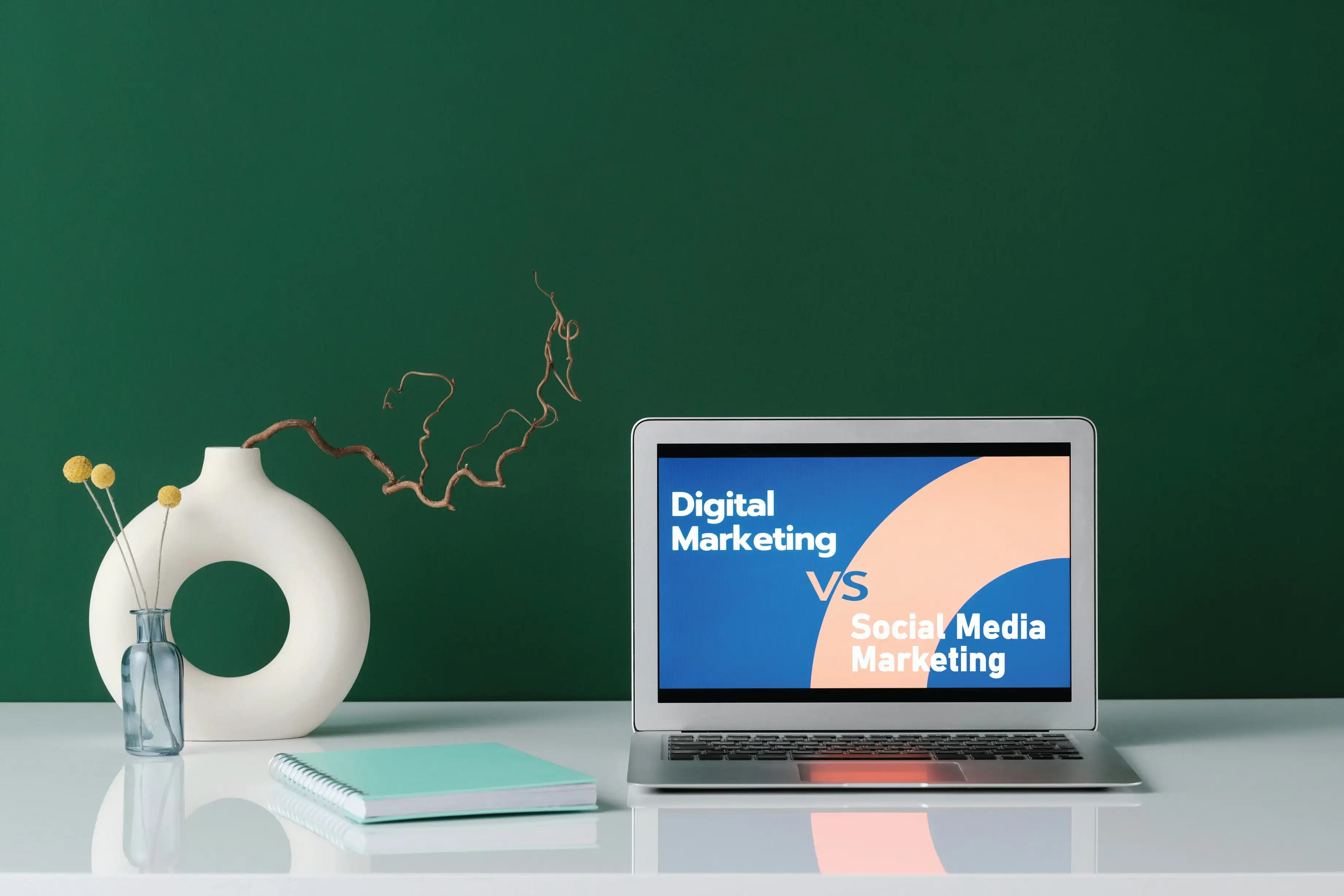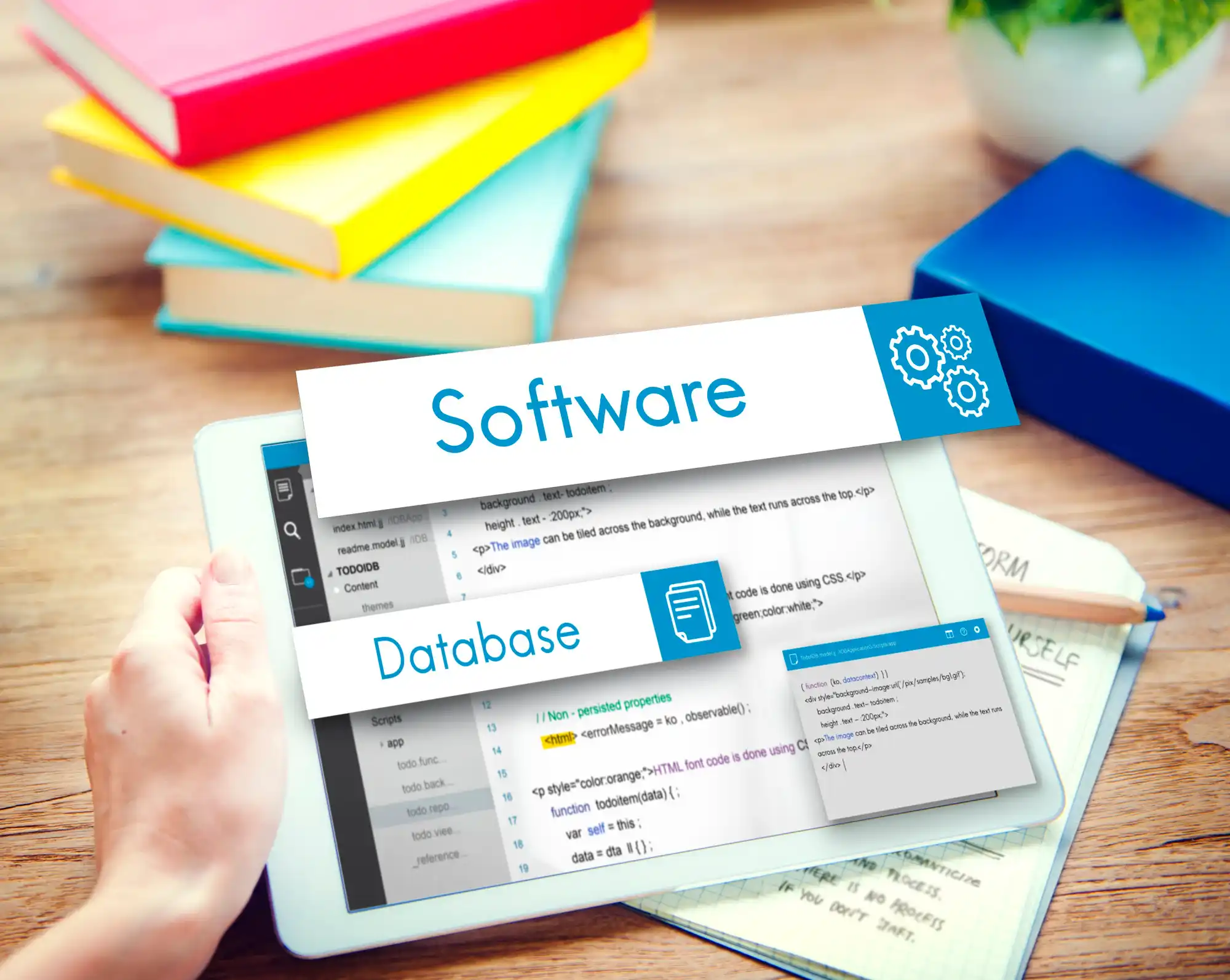
Digital Marketing and Social Media Marketing: The Ultimate Guide to Growing Your Online Presence
Introduction
Digital marketing is more important than ever, especially in comparison to traditional marketing strategies and social media marketing, which is a part of digital marketing, and it is also effective for businesses of all sizes. A proper digital strategy is not a luxury with the remaining consumers going online it is a must-have. Regardless of your business type, big or small, the proper implementation of digital marketing and social media marketing will help your access your targeted audience, engage more and convert them.
Our digital marketing guide will walk you through some basics of digital marketing and social media marketing (how they work, their advantages, how you can use them to grow your business). We will also explore the trends, tools, and tips to keep your marketing efforts ahead of the curve.
1. What is Digital Marketing?
Digital marketing, on the other hand, includes all marketing efforts that use an electronic device or the internet. It includes a range of online platforms and strategies to market products or services as well as to create brand recognition and sales.
The basic elements of digital marketing reflect as below:
Search Engine Optimization (SEO): This will help you optimize your website and content to appear higher on search engines such as Google, so you have a greater chance of appearing in the search results when people search for key terms related to your business.
Paid Search SEM: This is paid advertising on search where your business pays to show up at the top of the search results for specific keywords, typically through Google Ads.
Content Marketing: Involves the creation and sharing of material that is valuable and relevant to your audience (e.g. blogs, videos, infographics) to attract, engage, or retain consumers.
Email Marketing: Sending email campaigns in order to maintain relationships with prospects, improve sales, or loyalty of current customers.
PPC (Pay-per-click) Advertising: Ads you pay for on search engines or social media channels – but only when someone clicks.
Affiliate marketing: Working with influencers or other companies to advertise your products or services in return for a commission.
Online Public Relations (PR): Gaining coverage through blogs, and other social media, and increasing your positive online reputation.
2. Why is Digital Marketing Important?
With consumers being on the internet 24/7, digital marketing has many benefits compared to traditional methods of reaching and converting consumers:
Extensive Audience: Since billions of people use the internet regularly, it gives you the opportunity to reach a huge part of the global market.
A Cost-Effective Affair: Compared to traditional marketing methods like TV and print ads, digital marketing is generally less expensive, which makes it accessible to businesses of every scale.
Targeted Advertising: You can target certain demographics, locations, and interests to ensure that your marketing efforts are only reaching your ideal audience.
Measurable Results: One of the top benefits of digital marketing is the ability to get immediate data showing how your requested action is performing, and be able to further strategize your approach in the top way possible.
Enhanced Customer Interaction: Digital marketing enables companies to interact through comments, reviews, and social media directly with the customer which build strong relation.
3. What is Social Media Marketing?
Social media marketing is essentially using social media channels such as Facebook, Instagram, Twitter, LinkedIn, and TikTok to advertise a product, service, or brand. Social media marketing aims to provide interactive systems where businesses can create content around their brand and drive awareness, website traffic, and customer relationships.
So, what are the major social media platforms used for marketing?
Facebook: The biggest of the social networks, perfect for businesses looking to reach a general audience.
Instagram: Visual-driven platform, ideal for lifestyle, fashion, food, and travel brands
Twitter: Best for businesses to participate in live discussions, trends, and customer service.
LinkedIn: Ideal for B2B companies and professional services that want to network and establish authority.
TikTok: A platform that is rising fast and is ideal for brands that want to connect with a younger audience through bingeable short form video content.
4. Why Social Media Marketing Matters
Social Media Marketing creates direct engagement with customers and helps build a community around your business that then grows while increasing the visibility of your brand. Now you may wonder, why social media marketing could be so important?
Many-to-One Brand Awareness: It allows you to create awareness about your business among a large pool at once and on the platform of your choice.
Customer Insights: Businesses can gain immediate feedback and insights from real customers when they use social media, which allows you to adjust your marketing strategy based on what your consumers want.
Higher Traffic: Social media is the very best source of traffic on your website especially when you publish great content and social media promotional campaigns.
Lead generation: Businesses can target their audience with ads and other content to convert them into leads.
Community Building: Brands have the ability to build loyal communities around their brand with the help of social media by encouraging engagement, customer service, and advocacy.
5. Digital Marketing vs. Social Media Marketing: What’s the Difference?
Digital marketing and social media marketing have much in common, but here are some of the differences:
Digital marketing is a broad field that consists of various strategies across the internet, including SEO, SEM, email marketing, and more. In contrast, social media marketing refers specifically to promoting content and interacting with followers on social media.
Mediums & Channels: Digital marketing encompasses many tools and platforms, including search engines, email, social media, and content marketing. Social media marketing is about engaging users on the likes of FaceBook, Instagram, and Twitter.
Reason: The goal of digital marketing is to go visibility, lead generation and conversions via multiple channels. Social media marketing is still geared toward business growth, but it is geared much more toward relationship building, brand loyalty, and community building.
To put it simply, social media marketing is a part of digital marketing, but it has its own immense weaponry if wielded properly.
6. How to Create an Effective Digital Marketing Strategy
Digital Marketing Strategy A key to Success. Here’s how to build one:
Define Your Goals
Set some goals that have measures, to begin with. The goals you set will define your marketing efforts, whether you want more traffic to your website, new followers on social media, or sales.
Know Your Target Audience
Get to know how your audience thinks — their demographics, interests, pain points, and how they do their online activities. This means you can develop personalized content that speaks directly to them.
Choose the Right Channels
Identify the most appropriate digital marketing channels for targeting your audience. Social media marketing, for example, may be a better fit for visually rich businesses, whereas SEO may be better suited to service-oriented industries.
Create Compelling Content
In digital marketing, content reigns supreme. Whatever it is: Blog posts, videos, social media posts, or infographics, your content should be valuable, informative, and relevant.
Optimize for SEO
To ensure that your website, blog and social media is search engine optimized. What SEO does is, it ranks your content for a higher position so that it is better visible which drives in more traffic.
Monitor and Measure Results
Utilize tools to analyze your campaigns for performance. Website traffic and engagement rates, the potential for lead generation, and conversions are all metrics that should be monitored to measure success and iteratively enhance an effective strategy over the long term.
7. How to Build a Successful Social Media Marketing Strategy
A solid social media marketing strategy will allow you to establish your online likeness and connect with your social community. Here’s how to build one:
Set Clear Objectives
And as it is with digital marketing, you need to set goals for your social media marketing activities. By having specific goals in mind, you will help to shape your strategy with clear objectives that match the goals you want to achieve, be it building brand awareness, increasing engagement, or lead generation.
Choose the Right Platforms
Not all social media platforms are made the same. Identify where your target market hangs out and try to invest your efforts on those platforms. Examples include Instagram for visual brands or LinkedIn for professional services and B2B marketing.
Create Engaging Content
Produce audience-specific content It can include a combination of photos, videos, blogs, polls, stories, and user-generated content. Make it interesting, fun and match it with your brand voice.
Engage with Your Audience
Social media when people think are only spreading their message. Engage and Foster Relationships — Reply to comments, join in conversations, and engage in conversations with your followers in order to cultivate loyal community members.
Use Social Media Ads
Use advertising on platforms such as Facebook and Instagram to deliver targeted and effective ads to the right consumer Paid ads to maximize internal reach increase followers or sales.
Monitor Performance and Tweak
Track important indicators such as engagement, click-through, and conversion. Utilize the insights to adjust your strategy, improve your campaigns and maximize effectiveness.
8. Digital Marketing and Social Media Marketing Tools
Several tools can help streamline and optimize your digital marketing and social media marketing efforts:
● Google Analytics: For tracking website performance, user behavior, and conversions.
● Hootsuite/Buffer: For scheduling, managing, and analyzing social media posts.
● SEMrush/Moz: For SEO and keyword research.
● Mailchimp: For creating and managing email campaigns.
● Canva: For designing engaging social media posts, ads, and graphics.
● Google Ads/Facebook Ads: For running paid advertising campaigns.
9. Conclusion
In the current era of the business world, digital marketing and social media marketing form a fundamental part of establishing a successful online presence. As consumers increasingly rely on the internet for product, service, and brand research, businesses need to adapt a robust and engaging digital marketing strategy.
By utilizing digital marketing, businesses can leverage the benefits it has to offer so they can gain access to larger crowds, create awareness of their brand name, and boost sales through an array of online platforms be it SEO, content marketing, or email campaigns. Alternatively, social media marketing brings you one step closer to your set audience, enabling businesses to interact, connect, and cultivate community.
Integration of digital marketing and social media marketing within a digital marketing strategy is necessary to success in the long-run. To do all this you need to know your audience, know your objectives, have the right tools in place, and constantly analyze and optimize to improve your results.
So, if you are new to digital marketing and social media marketing, or wanting to strengthen your ongoing digital marketing and social media marketing efforts, you need to know the fundamentals and best practices of each to be successful. If you are looking for taking your business to the next level of digital marketing or want to make full use of social media marketing, then do not miss an expert guidance and support.
Call to Action
Ready to enhance your digital presence and engage your audience like never before? Contact - Nori Technology today for a free consultation and let us help you create a tailored digital marketing and social media marketing strategy that will drive growth, increase conversions, and elevate your brand’s online presence.
FAQ (Frequently Asked Questions)
1. What is the difference between digital marketing and social media marketing?
○ Digital marketing refers to all marketing efforts that take place online, including SEO, content marketing, email marketing, and more. Social media marketing, on the other hand, is a subset of digital marketing focused on leveraging social media platforms like Facebook, Instagram, Twitter, and LinkedIn to promote a brand and engage with customers.
2. How long does it take to see results from digital marketing?
○ The time it takes to see results depends on the strategies you employ. For SEO, it may take a few months to see significant changes. Paid advertising and social media campaigns can show quicker results, often within a few weeks.
3. Why is social media marketing important for my business?
○ Social media marketing helps build brand awareness, engage with your audience in real-time, and drive traffic to your website. It’s a valuable tool for customer support and fostering relationships with your customers, building loyalty.
4. How do I measure success in digital marketing?
○ Success in digital marketing can be measured through various key performance indicators (KPIs), such as website traffic, conversion rates, click-through rates (CTR), social media engagement, and ROI (return on investment).
5. Can I manage my digital marketing efforts myself?
○ While you can manage digital marketing efforts in-house, many businesses choose to work with professionals to ensure a comprehensive and well-executed strategy. Agencies bring expertise in SEO, PPC, content marketing, and analytics to drive results effectively.
Final Thoughts
However, digital marketing and social media marketing are two crucial elements of any successful marketing effort. Using these tools and strategies, you can improve your visibility as well as build stronger relationships with customers and achieve your business goals. Remember that digital marketing is an iterative process which needs to be refined and refined over the years.
Keep reading, try new approaches, tailor to your audience listen to audiences as you would your competition and it will be your digital landscape.

.webp)

